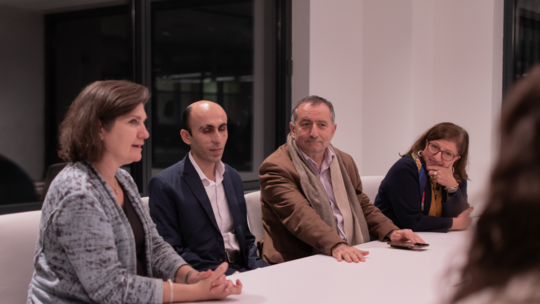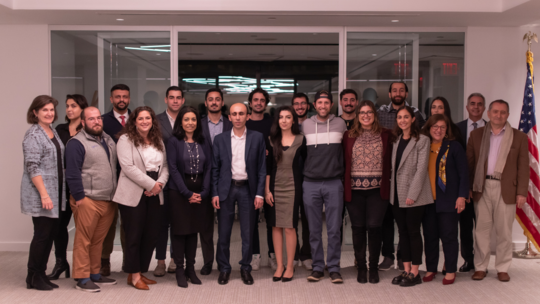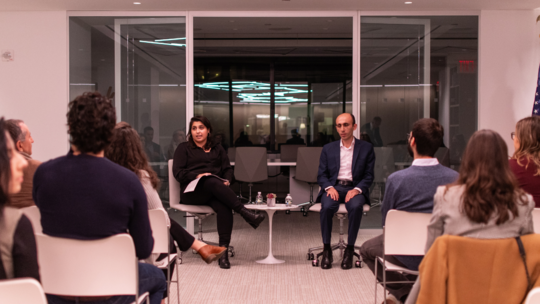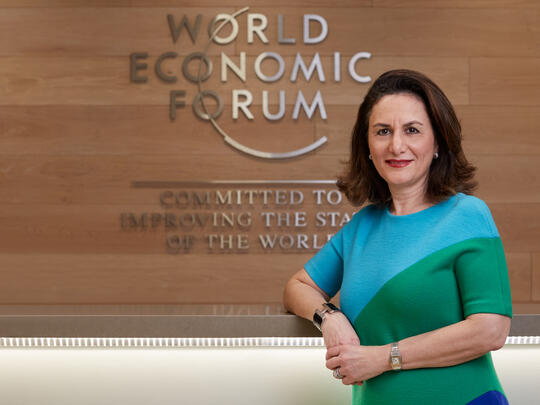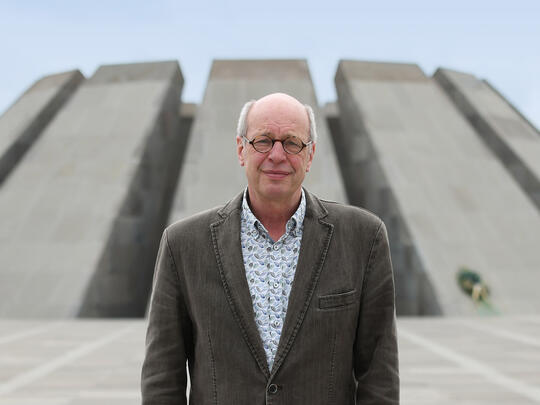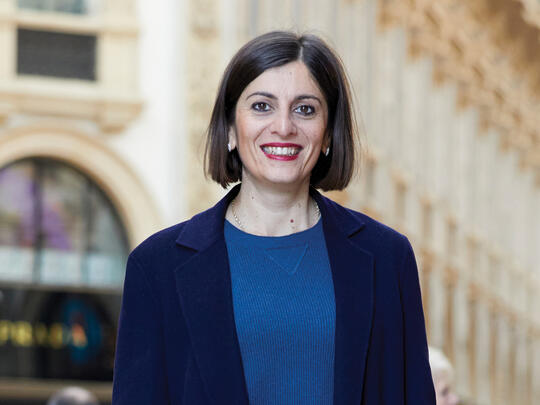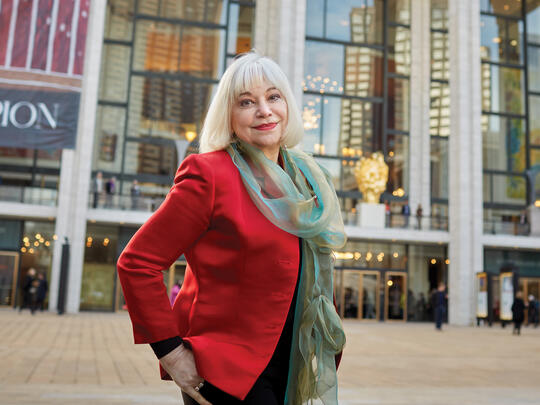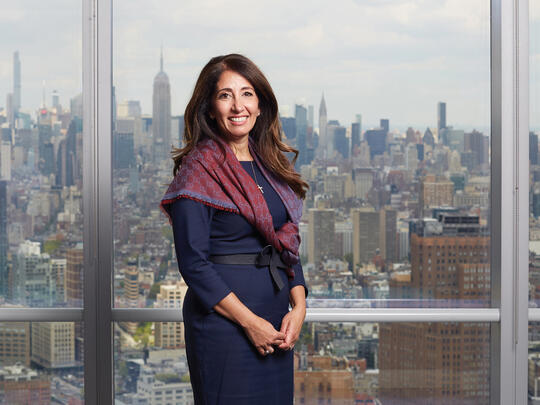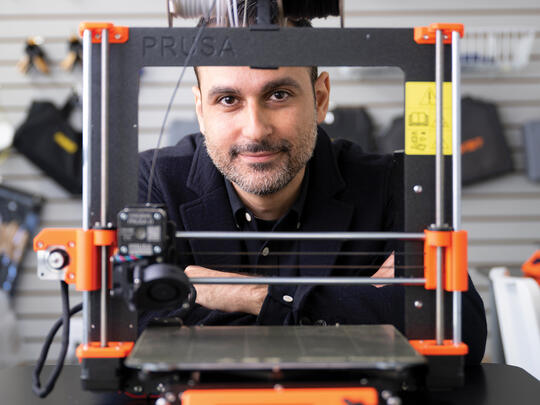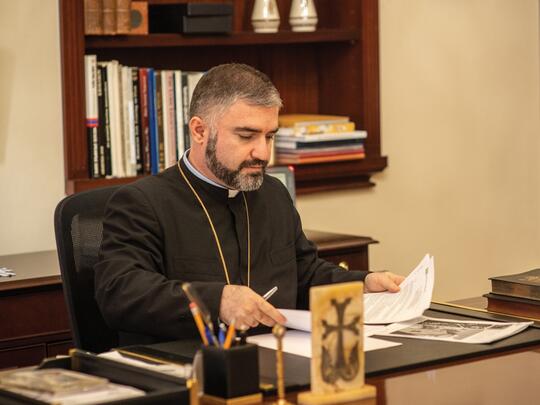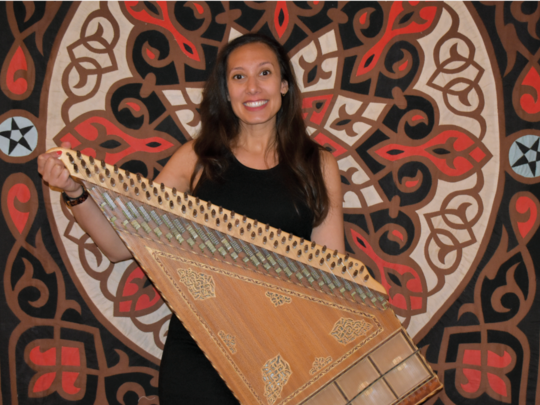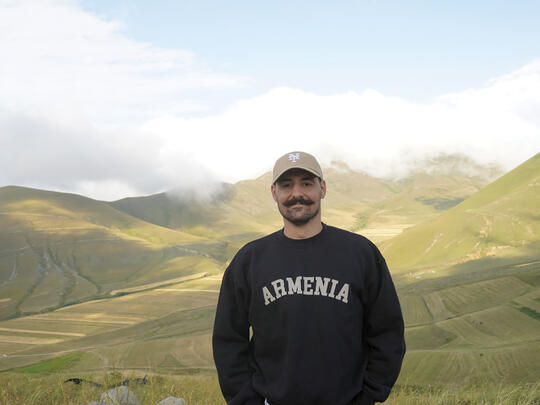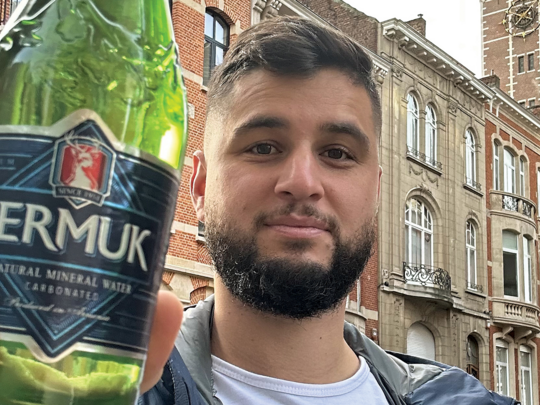
AGBU Organizes Open Forum for Artsakh Minister of State Artak Beglaryan
On November 11, 2021, Artsakh’s Minister of State Artak Beglaryan visited AGBU’s Central Office in New York to meet with members of the Central Board and engage in an open forum with young professionals in the Greater NY Armenian community. Accompanied by special advisor David Akopyan, who has spent decades working in the United Nations on development and security, Beglaryan arrived to share a strategy for the next chapter in Artsakh’s history.
Beglaryan’s tour coincided with the anniversary of the ceasefire that ended the brutal asymmetrical war waged against Artsakh in 2020. As the global Armenian nation reflected on the past year of uncertainty and turmoil, he admitted that he came to assuage anxieties over the precarious predicament Artsakh’s indigenous Armenians are in now.
Before the open forum, Beglaryan and Akopyan met with AGBU Board members Arda Haratunian, Nazareth Festekjian, and Ani Manoukian, and members of the AGBU Central Office team. An AGBU Scholarship recipient himself, Beglaryan acknowledged AGBU’s work in the region focused on programs in education, culture, humanitarian relief, and socio-economic growth. Given the shifting realities facing Artsakh today, an expansion of new programs and the potential for a stronger administrative presence in the region were discussed.
“AGBU has been one of the long and hard players in Artsakh’s development,” Mr. Beglaryan said. “Its programs have served as an example to many other organizations, especially in terms of capacity building.” It was agreed that these conversations will continue in earnest to develop initiatives that confront the current situation in the region and serve the many Artsakhtsi’s who are rebuilding a life for themselves.
During the forum with the Young Professionals, Beglaryan answered a multitude of questions. Coming to AGBU after over a hundred meetings throughout the United States, he spoke optimistically, acknowledging concerns about the difficulties Artsakh faces while highlighting the opportunities to collaborate and invest. By his own account, he has met with over 1,500 people since he started his trip on October 20, traveling through Los Angeles, Fresno, San Francisco, Washington D.C., Boston, New Jersey, and New York. Connecting with congress members and leaders in the Armenian community alike, his mission was to usher in a new era in Artsakh’s diplomacy. “Our primary purpose is to present the situation in Artsakh— our current perspectives and future goals— and hear from our communities,” he explained. “We want to listen and learn about how we can engage our Diaspora more effectively and develop Artsakh together.”
Moderator Nana Shakhnazaryan positioned the evening as an opportunity to see Artsakh from a native perspective and encouraged the audience to take advantage of how intimate this open forum was. “Minister Beglaryan reminds us that we are not a conquered people and he comes with a vision for the future and an invitation to partake in building it together,” she stated.
In light of the recent murders of unarmed Armenian civilians, the forum began with questions on the Russian peacekeepers and their authority in the face of Azerbaijani aggression. “The presence of Russian peacekeepers is the source of stability in Artsakh. Because Azerbaijan is not pleased with the demographics in the region, having expected many more Armenians to emigrate indefinitely after its military campaign, its service members actively jeopardize and undermine Russian peacekeeping efforts to provoke a response,” Beglaryan explained. “We have a constructive relationship with the Russian peacekeepers, but because they do not have formal regulations and lack the authority to launch investigations into breaches of the ceasefire, they are often in a deadlock.”
Before he assumed the position of Minister of State, Beglaryan came to prominence as the Human Rights Defender of Artsakh. As Ombudsman, he tirelessly catalogued the series of abuses indigenous Armenians faced during the war and in the murky aftermath of ceasefire. Still a dedicated advocate, he fielded questions on the ways in which justice can be sought on the international stage and the key issue of Armenian prisoners of war still captive in Azerbaijan. “We have documented the details of these abuses extensively but have been unable to investigate or record what we estimate to be thousands of crimes on the Azerbaijani side,” he explained. “A lot of statements were made by politicians and human rights activists alike, but we haven’t seen any change in Azerbaijan’s behavior and have yet to see the impact of these statements.” Beglaryan also described how Azerbaijan’s authoritarian state policy of Armenophobia has created a situation in which any attempt at transitional justice or reconciliation remains impossible. He called out to the audience to leverage their networks in any attempt to raise awareness for this ongoing campaign of human rights violations, affirming that though the government of Artsakh relies heavily on the Republic of Armenia to plead these cases, it still welcomes the support of the Diaspora.
When asked how the Diaspora can be of most help to Artsakh, he explained how vital capacity building is in the scope of nation building and how each person can leverage their own unique professional experience to create opportunities for knowledge sharing. “Living under isolation and ongoing security threats means it’s hard to be open-minded and access a diversity of perspectives,” he said. “To cultivate a culture of adaptability, Diasporans can share their perspectives and their worldview” He suggested that every industry in Artsakh could use the insight and that capacity building is a priority for the state as it looks to create sustainable development in a region rife with uncertainty.
In addition to questions on how the security checkpoints affect free trade, economic prospects and business development, and what is being done to bolster Artsakh’s defense and security systems, Beglaryan also answered questions in relation to visa requirements to visit Artsakh. Currently, foreign nationals need to apply for a visa in person at the Artsakh Embassy in Yerevan and few seem to be accepted on their first attempt. He explained that a more straightforward process will soon be available online and it will grant more accessibility for a Diaspora looking to travel into and invest in the region.
A lively interaction with the audience, which covered the gamut of issues from emigration to media representation of the conflict, came to a close with Beglaryan outlining the five pillars he sees Artsakh’s future is based on: security; sustainable economic development; growing demography; education; and good governance. “We have no short-term solutions,” he asserted. “Those five pillars can only be maintained by five equally potent approaches: self-analysis; unity; perseverance; strategic thinking and service thinking.”
On this last point, he elaborated, saying: “We should understand that each nation, and especially our Armenian nation, has its mission and its service to humanity. We are not alone on earth. We have already given a lot to humanity, but we still have more not only to receive but to give. We should build a nation that will be known to all by its service."

